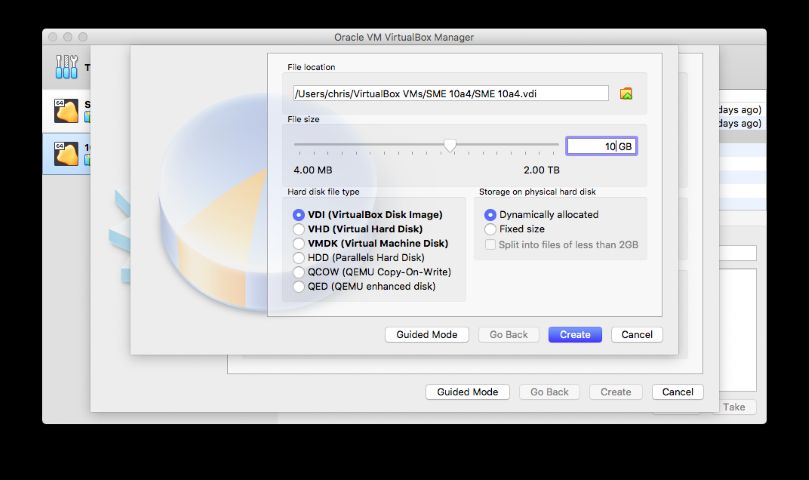Difference between revisions of "Testing Environments"
m (→MacOS: Image change) |
|||
| Line 17: | Line 17: | ||
Set your new drive to at least 10GB, leave it as VDI, Dynamically Allocated | Set your new drive to at least 10GB, leave it as VDI, Dynamically Allocated | ||
| − | [[File:New Drive. | + | [[File:New Drive.jpg]] |
=== Proxmox === | === Proxmox === | ||
Revision as of 06:05, 30 March 2020
Hardware
For testing purposes hardware compatibility is a particularly important concern if you have an older or custom-built system. Because hardware specifications change almost daily, it is recommended that systems should be checked for compatibility. The most recent list of supported hardware can be found in the Red Hat Hardware Compatibility List, available online at https://access.redhat.com/ecosystem/search/#/category/Server. Also see Red Hat Enterprise Linux technology capabilities and limits for general information about system requirements.
As a general rule just about any hardware will suffice as a Standalone test machines or as a host for a virtual environment.
VM Setups
VirtualBox
MacOS
Create a new Virtual Machine, choose 'Linux' as the type, 'Other Linux (64-bit)' as the version and set the memory to at least 1GB, ideally 2GB+ as ClamAV on its own needs ~1GB.
Set your new drive to at least 10GB, leave it as VDI, Dynamically Allocated
